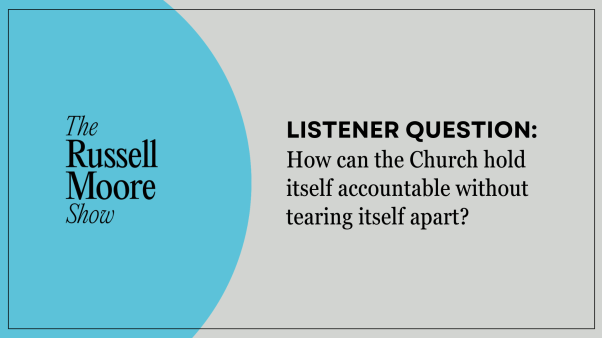
Earlier this summer in The New Republic, Judith Shulevitz opened up an ugly can of worms, writing that "loneliness lay at the heart of nearly all mental illness and the lonely person was just about the most terrifying spectacle in the world."
She explores the fascinating history of loneliness and mental health and how it slowly became an area for scientific research. Going by Shulevitz's definition of loneliness—"the want of intimacy"— we're all suffering. Most of us aren't mentally ill or chronically depressed; we're just human. We can't help but feel this pervasive sense of disconnectedness.
In the Christian tradition, we have a certain understanding that loneliness is inevitable and part of the human condition. We're created for complete union with God, but unable to fully consummate that union this side of God's Kingdom. There is an Augustinian element of truth from which we cannot escape no matter how much intimacy we do cultivate. Still, that doesn't seem like a sufficient response for our loneliness predicament. If anything, it's an invitation for Christians to communicate more openly about the challenges of the loneliness we are all bound to experience at various seasons of our lives.
In our age of social media, when new "friends" are a click away on Facebook and Twitter users actively form real-time communities around everything from favorite TV shows to breaking political news, we can easily be led to think that loneliness is an outdated phenomenon. But it is not.
An animation on Vimeo called "The Innovation of Loneliness" illustrated how these social networks can perpetuate our feelings of being alone. Our modern society largely measures individual success by personal achievements that have little to do with maintaining healthy social communities. "Many people lose their social and familial communities in favor of a self-actualization ideal," said Shimi Cohen, the video's creator. He plays off the research of Sherry Turkel, an MIT professor and author of Alone Together, who suggests that the false sense of intimacy created in the virtual world fails to satisfy people's real needs for knowing others and being known by others.
After all, being lonely is not necessarily about a-lone-ness, but about lack of intimate, meaningful connection. Intimacy comes from recognizing the value of vulnerability, that needing other people is not a sign of weakness but a mere fact of human existence. This necessary criteria for intimacy goes against our cultural conditioning to laud the self-made, self-sufficient person.
On the other hand, I think of the West African culture in which I was raised, where living and working together with others gets so interwoven into the daily fabric of life that one barely has the opportunity to sit in feelings of loneliness for very long. I've noticed that in many "developing" countries and in Southern Europe, cultural patterns provide ample opportunity for fostering intimate relationships over the mundane aspects of shared lives, with families across generations living together under one roof and random visitors showing up at your doorstep, only to be welcomed with a sense of hospitality.
As I continue to come across articles that deal with our loneliness—revealing not only the emotional effects of the condition, but physical ones, like illness and early death, as well—I wonder if we are talking about it in our communities, or just writing about it on the Internet?
As communities of faith we can and should reflect on what we might do to help one another respond well in those moments, hours, days, and seasons. As Christians, how do we prepare one another for the inevitability of loneliness, whether married, single, socially overactive or not?
The lonely can easily fall into the unfulfilling trap of the quick fix: the new romantic relationship or sexual encounter, the new material item, or novel experience that we hope will fill that space (turns out shopping is linked to loneliness). Loneliness can make our head lie to our heart and vice-versa.
As Christians, we're called to train one another in the theological virtue of caritas, as understood by Thomas Aquinas as friendship with God that ultimately leads to deepened friendship with one another. In that space, we learn to cultivate more genuine depths of safe intimacy with one another not merely for our own sakes but for the sake of the one who first called us friends and never sent his disciples out alone.
The oft-buzzed about (and tentatively titled) Songs of Ascent, reportedly U2’s most directly worshipful album yet, is apparently on the fast track, says their manager.
“I would expect a new U2 album sooner than anybody thinks,” Paul McGuinness told the Irish Times. “I would guess early 2011 before the next leg of the American tour which starts in May.”
The Irish Times reported that McGuinness says the album will likely include “Mercy” and “Every Breaking Wave,” which the band has been playing at its recent shows.
“Mercy” (see the video below this post) includes these lyrics:
Love has come again / I am gone again
Love is the end of history / The enemy of misery
Love has come again / I am gone again
Love is justice, a charity / Love brings with it a clarity
Love has come again / I’m alive again
I am alive, baby I’m born again and again
And again, and again and again and again
Bono has described “Every Breaking Wave” (video, lyrics) as a “surging anthem,” and says it will be the first single off the new album. Another possible song on the album, according to @U2, is “North Star” (lyrics), a song from the How To Dismantle an Atomic Bomb sessions which included a guest organ appearance from Michael W. Smith. (In an interview with CCM, Smith described the song as a tribute to the unwavering faith of Johnny Cash.) Read more about more possible songs on the album here.
In a recent interview with Australia’s The Age, Bono said that the new album – the first of three albums they’re working on – is being produced by Danger Mouse, the alias for American production ace Brian Burton (Gnarls Barkley, Gorillaz).
“We have about 12 songs with him,” Bono said. “At the moment that looks like the album we will put out next because it’s just happening so easily.”
Bono said the next album after that will be a “club” record featuring Lady Gaga collaborator RedOne, Black Eyed Peas rapper Will.I.Am, and French superstar David Guetta. He also said that he and guitarist The Edge are trying to convince their bandmates Adam Clayton and Larry Mullen Jr. on recording an album based on the 20 songs the two have written for a Spider-Man musical that opens on Broadway next month.
“We haven’t convinced the rest of the band to do that yet,” Bono told The Age. “Larry definitely has a raised eyebrow.”
Here’s the video for “Mercy”:








